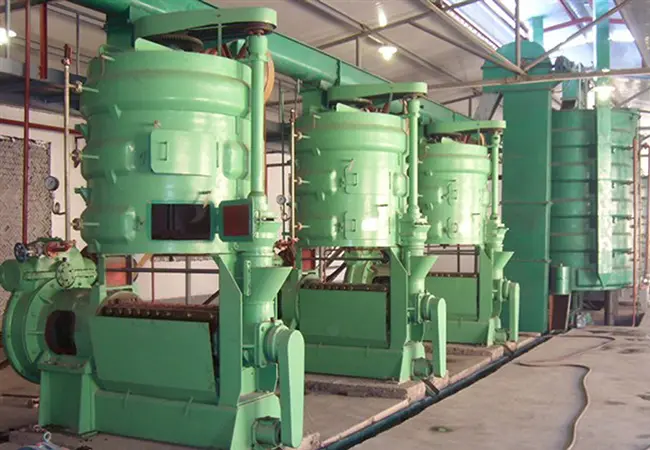Nov . 08, 2024 07:30 Back to list
Exploring the Production Processes of Rapeseed Oil Pressing Facilities
The Growing Importance of Rapeseed Oil Press Factories
In recent years, the global demand for vegetable oils has surged, with rapeseed oil emerging as a key player in the market. As one of the most widely produced and consumed oils worldwide, rapeseed oil offers a wealth of benefits, leading to the establishment and expansion of rapeseed oil press factories. This article explores the significance of these factories, their operational processes, and the impacts they have on the economy and environment.
What is Rapeseed Oil?
Rapeseed oil is derived from the seeds of the rapeseed plant, which is part of the Brassica family. With its high unsaturated fat content and low saturated fat levels, it is favored for cooking and food processing. Additionally, rapeseed oil is praised for its nutritious properties, including high levels of omega-3 and omega-6 fatty acids. In recent years, it has gained popularity not only for culinary uses but also for biofuel production, making it a highly versatile component of the agricultural sector.
The Role of Rapeseed Oil Press Factories
Rapeseed oil press factories play a pivotal role in processing the raw seeds into oil. The process typically involves several steps, including cleaning, crushing, and extracting oil from the seeds. These factories utilize various methods, such as mechanical pressing and solvent extraction, to optimize yield and ensure the quality of the final product.
1. Cleaning The raw seeds are first cleaned to remove impurities such as dirt, stones, and other seeds. This step is crucial for ensuring the purity and quality of the extracted oil.
2. Crushing Once cleaned, the seeds are crushed to break down the cell structure, making the oil extraction process more efficient. This follows an important principle of oil extraction, where the greater the surface area, the more oil can be extracted.
rapeseed oil press factories

3. Oil Extraction There are two primary methods for extracting oil mechanical pressing and solvent extraction. Mechanical pressing uses hydraulic or screw presses to extract oil, resulting in a minimally processed oil that retains most of its nutrients. On the other hand, solvent extraction employs chemical solvents (usually hexane) to dissolve oil, increasing yield but potentially leaving chemical residues. The choice between these methods depends on the factory's goals—whether to prioritize quality or quantity.
4. Refining After extraction, the crude oil undergoes refining to remove impurities, odors, and colors. The refining process typically includes degumming, neutralization, bleaching, and deodorization. The final product is a clear, light-colored oil that is ready for packaging and distribution.
Economic and Environmental Impact
The establishment of rapeseed oil press factories contributes significantly to local and national economies. These factories create jobs, from agricultural workers growing rapeseed to factory staff involved in production and distribution. Furthermore, they stimulate agricultural sectors by encouraging farmers to cultivate rapeseed, thus enhancing agricultural diversity.
However, the environmental implications of rapeseed oil production must also be considered. While rapeseed can be grown in various climates with lower fertilizer requirements compared to other oil crops, large-scale farming can lead to monoculture practices and loss of biodiversity. Sustainable practices, such as crop rotation and integrated pest management, are essential for minimizing environmental impacts.
Moreover, with the global shift towards renewable energy sources, rapeseed oil is increasingly recognized for its potential as a biofuel. It can be used in biodiesel production, offering an eco-friendlier alternative to fossil fuels. This aspect not only promotes energy independence but also aligns with global initiatives aimed at reducing carbon emissions.
Conclusion
Rapeseed oil press factories play a crucial role in the agricultural and industrial sectors. By transforming raw rapeseed into a valuable oil for culinary, nutritional, and biofuel purposes, these factories contribute to economic growth while also raising important environmental considerations. As the demand for sustainable practices continues to rise, the future of rapeseed oil and its press factories will undoubtedly evolve to meet the challenges of a changing world, ensuring that they remain a vital resource for many.
-
Top Food Oil Refined Unit Companies w/ GPT-4 Turbo Tech
NewsAug.01,2025
-
Premium Black Seed Oil Expeller - High Efficiency Cold Press Oil Machine
NewsJul.31,2025
-
Oil Processing Equipment - High-Efficiency Flaking Machine
NewsJul.25,2025
-
High-Efficiency Peanut Oil Refined Machine for Quality Oil Production Leading Exporters & Companies
NewsJul.08,2025
-
High Efficiency Sunflower Seed Oil Press – Leading Cooking Oil Press Machine Factories & Suppliers
NewsJul.08,2025
-
High-Efficiency Soybean Oil Press Machine – Leading Exporters & Reliable Companies
NewsJul.07,2025
